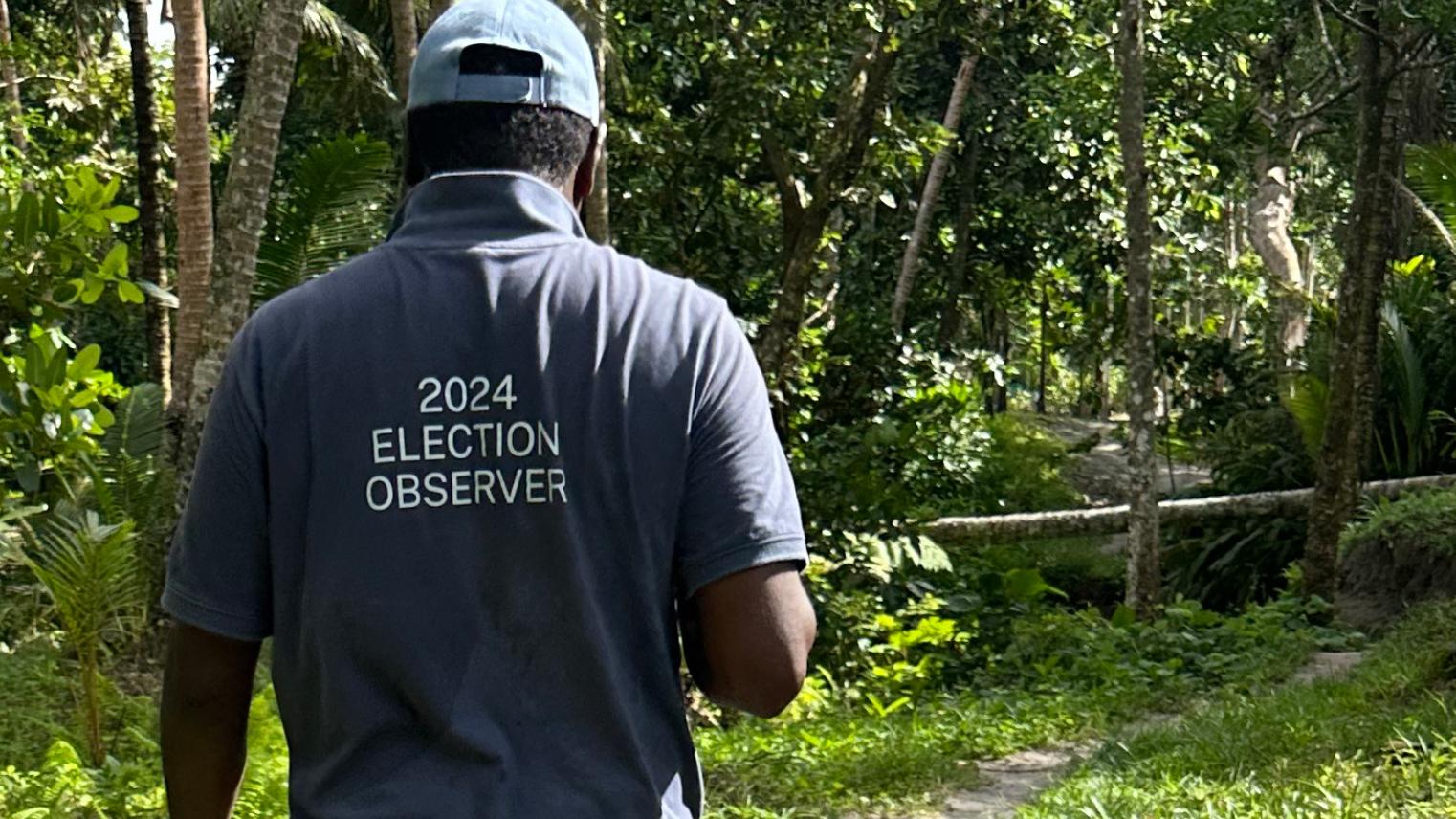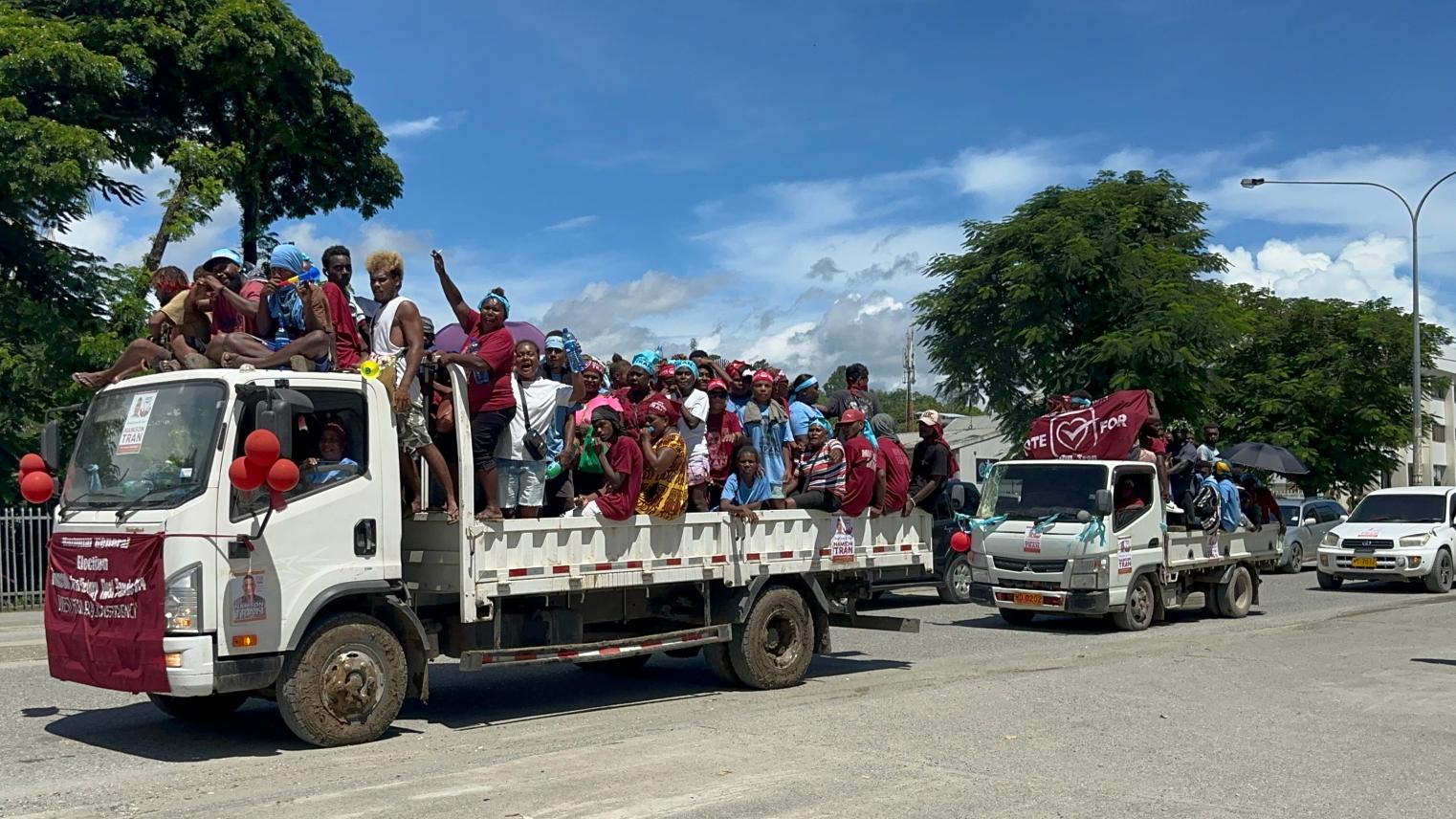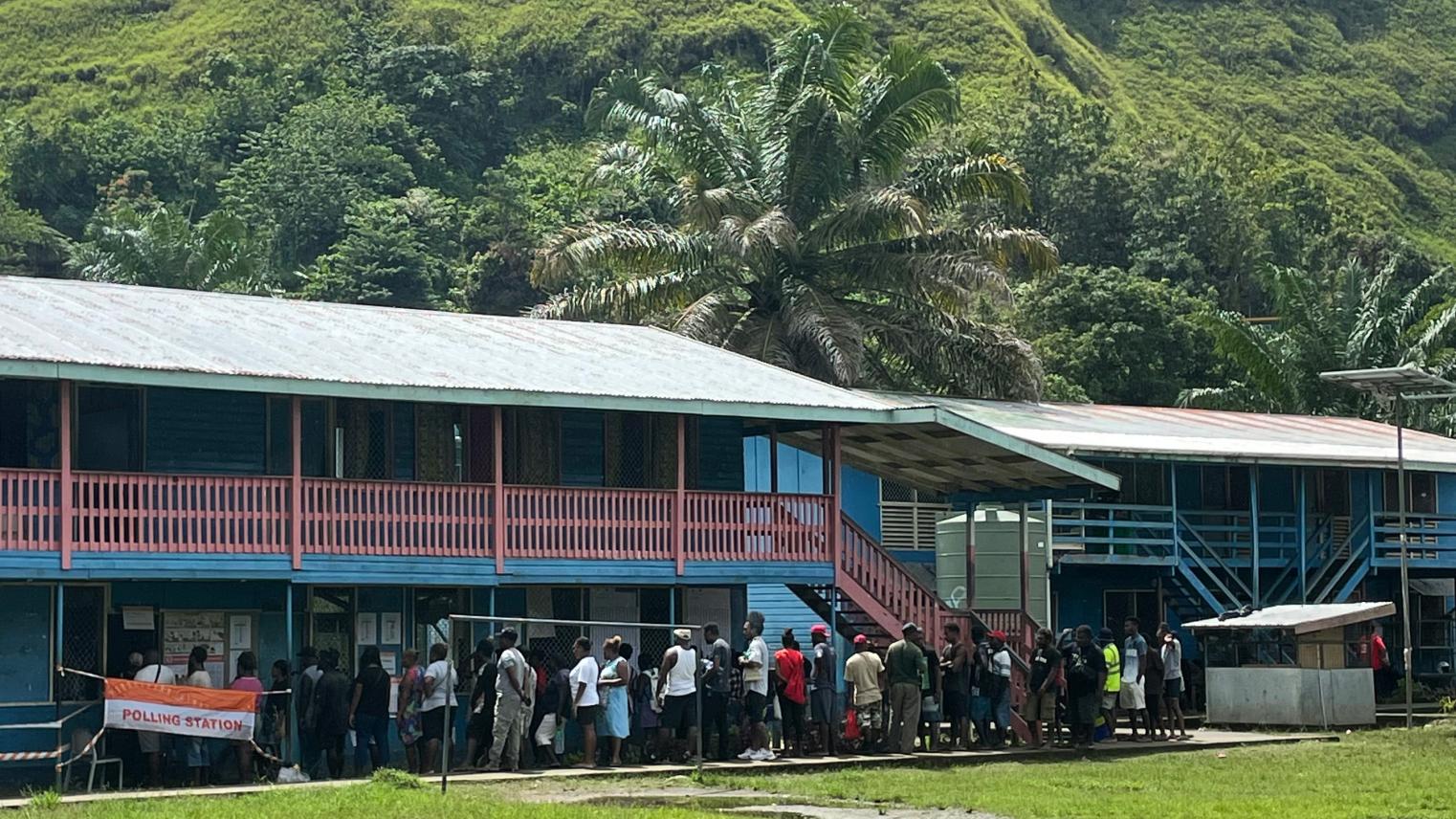Observing the 2024 elections in Solomon Islands

Small boats, 4WDs and walking long distances to reach remote communities is all part of the job for the 15 teams of ANU-SINU election observers conducting observations of Solomon Islands’ 12th general elections in April 2024.
The Australian National University (ANU) and Solomon Islands National University (SINU) have partnered to observe the 12th national general election, held on 17 April. The ANU-SINU observation group is composed of 78 citizen observers and 6 international observers in 15 teams across the country. The observation is jointly funded by the ANU Department of Pacific Affairs (DPA) and the Australian Government Department of Foreign Affairs and Trade.
The goal of the research-led election observation project is to both provide an impartial and accurate assessment of the election, and to deepen understanding of political attitudes and electoral behaviour in Solomon Islands. Drawing on the same methodology as the 2019 observation, the ANU-SINU group is observing campaign, polling and counting periods, as well as conducting two citizens’ surveys in the pre-polling and post-polling periods. The ANU-SINU observation group is the largest for the 2024 general elections.
The project is a big logistical exercise. The teams are deployed by plane, ferry and OBMs (small boats with outboard motors) to seven of Solomon Islands’ nine provinces. They traverse each constituency to collect data that represents the population, which often involves boat travel, 4WD vehicles, and in some instances walking long distances to reach remote communities. They stay in the field for three weeks, significantly longer than most observation groups.
Campaigning can be a colourful experience. On 15 April, the streets of the capital Honiara were packed with candidate floats – convoys of vehicles decorated with candidate and party colours and packed full of supporters. These floats are often the final chance to demonstrate support before the campaign black-out period begins, 24 hours before election day.

Polls opened at 7am on Wednesday 17 April, with long queues to vote in many places. The 2024 general elections were the first time that Solomon Islands have held ‘joint elections’ – running provincial, city council and national elections at the same time. ANU-SINU observers were present at polling stations around the country monitoring progress of voting.

Following polling, teams moved to observe counting and conduct post-polling surveys. As the official results come through, successful candidates then begin the negotiations for the formation of government – a process that often takes weeks. In the meantime, the ANU-SINU team will gather at the end of the month in Honiara for a debrief on their experience observing.
ANU has a long history of election observations in the Pacific Islands region, including eight large-scale observation projects led by DPA. The 2024 Solomon Islands election observation project has been an opportunity to develop and extend the partnership between ANU and SINU – combining DPA’s established methodology for election observation, and SINU’s deep local knowledge and expertise. This collaboration will continue in data analysis and producing a comprehensive report on the election. The Solomon Islands Election Commission has advised that it has a strong interest in the findings of the observation exercise, which can potentially provide an evidence base for future electoral reforms.
By Dr Kerryn Baker, Dr Colin Wiltshire, James Batley, and Stephanie Russo.